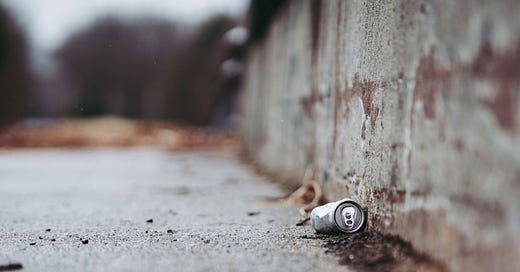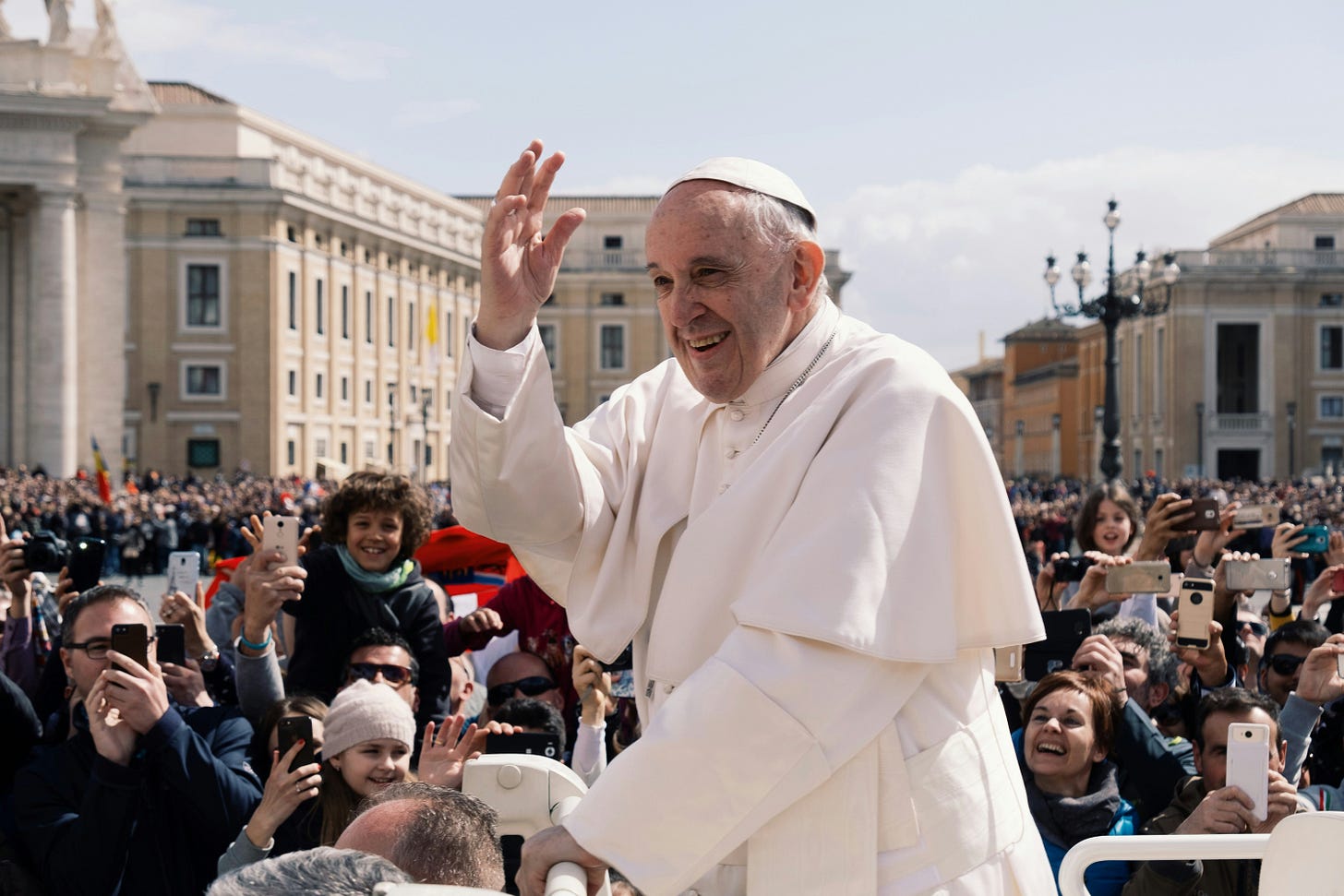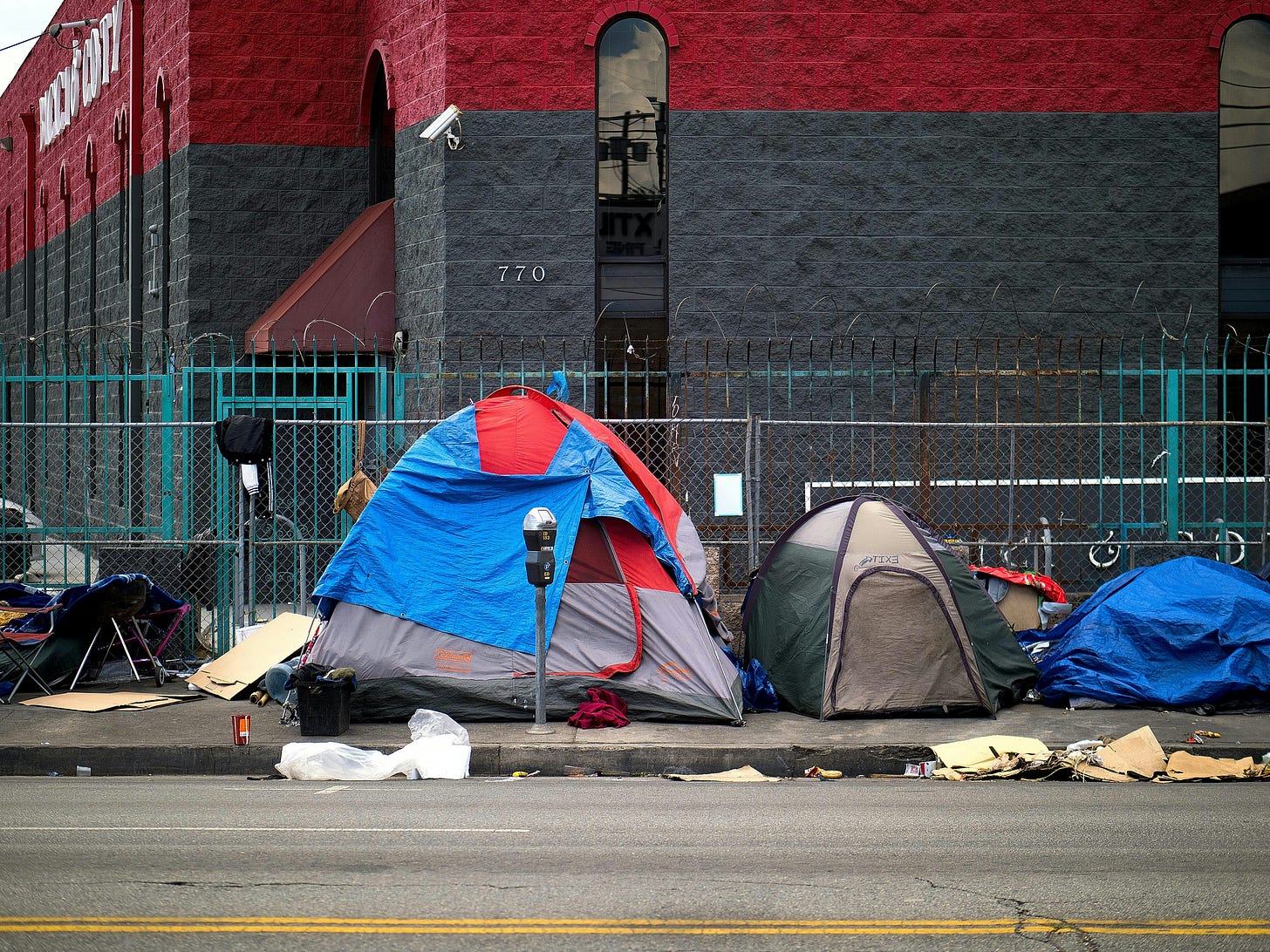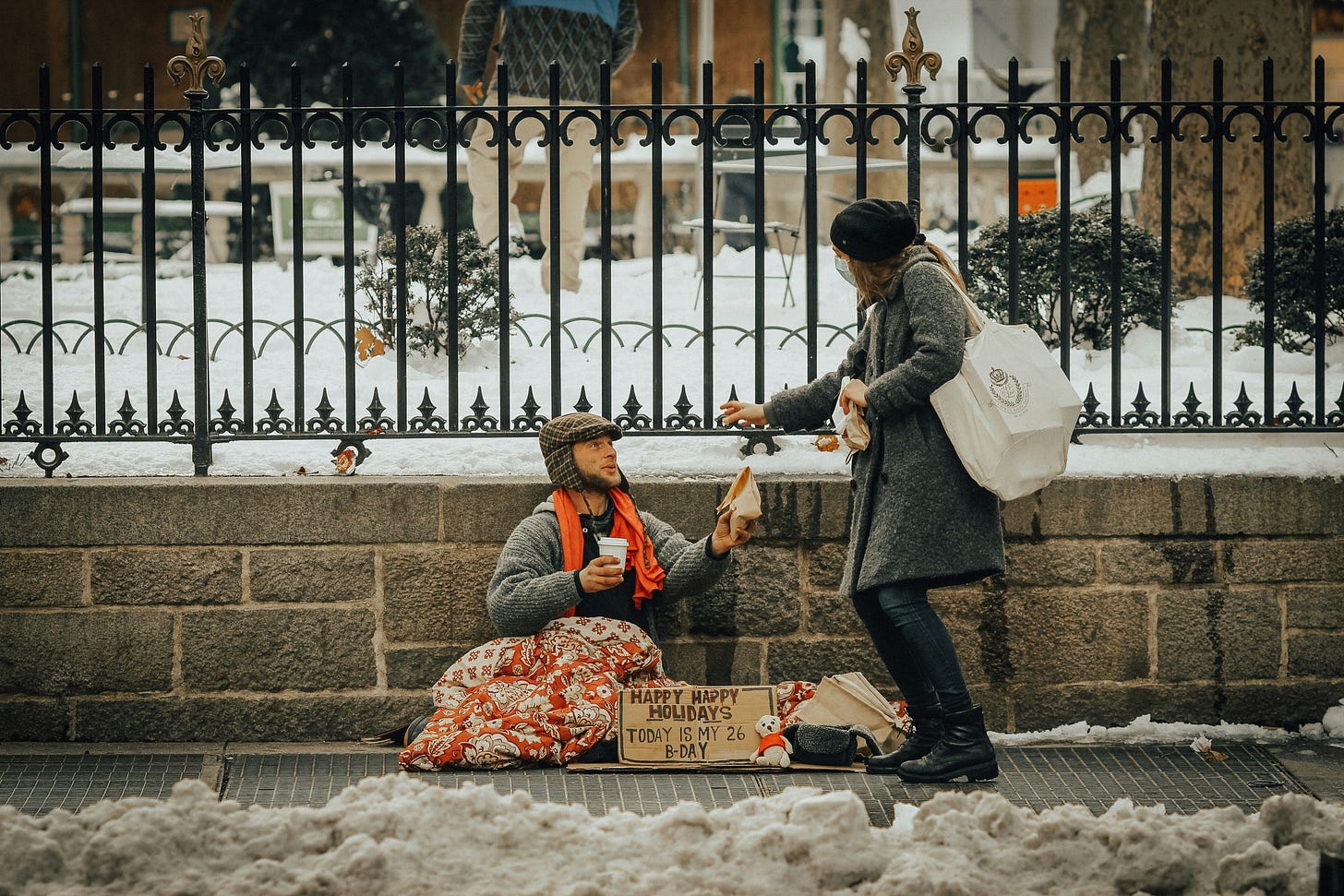Thursday around midmorning, my adult son and I stood in a line outside a bottle return center, shoving along several bags of our empty cans and bottles to redeem. I’d never done anything like that, although my son was much more comfortable. At least it wasn’t raining.
Some of those standing in the line were toothless. Others dragged their belongings as they inched forward. A nauseating stench—body odor and stale beer—hung in the air. The pavement was so sticky, I kept thinking I’d stepped in gum.
At first, the scene frightened me.
If you’ve grown up white and privileged like me, maybe you’ve been told that bootstrap effort works for everyone. We tend to blame people for their own misfortunes—as we honk our horns and shout out the driver’s side window, “Get a job!”
A few days after Pope Francis’ death, I realized I could use a dose of his empathy. Throughout his life, he reached for the unhoused, the needy, the marginalized in ways that imitated Christ. Americans have leavened Christianity with liberal doses of capitalism—we often worship individual success more than community help.
A million things are wrong with this attitude. But as I learned, there’s no substitute for direct experience.
The man in front of me was eating cheese crackers and sipping a cherry Coke. I greeted him and he said hi. A guy on an electric scooter asked if anyone wanted to buy it. A man broke a glass bottle directly behind my parked car, and an older woman with a backpack remarked that someone should clean it up. I tried to assure her that I’d be careful not to run over the shards, which she said would be tragic. “I’ve had that happen,” she added, shaking her head.
The sun kept climbing and my jacket was too warm. The line behind me had grown—my son explained that daily around noon, those who’ve been collecting cans all morning converge on the center to get what money they can for the day. “Same thing around six,” my son said. “Everybody needs money to get a sandwich, make it through the night.”
A sandwich? Maybe some overpriced junk food like the guy in line was eating? Something to dull the pain for a few hours? And early next day, the cycle repeats. I thought of the row of tents and makeshift shelters lining the chain-link fence next door.
By eleven-thirty, the sun wasn’t making life any easier as it beat down on the encampment’s residents. No shade or escaping the stares—from people who don’t know what it’s like to live surrounded by chaos and putrid odors. I closed my eyes and imagined these same folks at the first century gates, waving their crutches at passing citizens, holding out dirty hands in case someone took pity.
Jesus saw outcasts and loved them. Jesus risked everything by healing sickness, calming demoniacs, consoling the lost, feeding orphans and widows. And Pope Francis modeled the same love in our lifetime.
Jesus saw outcasts and loved them.
A large man in a neon orange safety vest yelled, “Next!” I helped my son scoot our bags over to a conveyer belt table. The orange guy stood there with a broom, feeding two-liters and empty cans into an open maw. Somehow, he was able to estimate how much we were due, and another machine dispensed the cash.
Outside, a stray can rolled under the car. My son handed it to a thin guy who muttered, “Thanks.” The sharp smell was gone now—the longer I stayed, the less it bothered me.
My heart ached for these literally great unwashed. The current federal government hasn’t done much to help folks with mental health, addiction issues or to afford decent shelter. Yet our government works to slash programs like Meals on Wheels that provide services to marginalized people. The tents and the tarps and the chain-link fence towns keep growing. Some in power have decided that losers aren’t worth helping. And because we’re human, we’re all tempted to look away.
Some of Jesus’ top followers turned their backs when he needed them most. In the face of suffering, too many today want to cast blame. I can’t fix everything, but even if I can’t solve such gigantic problems, I’m not excused.
Thursday, it was hard not to promise that I’d be back with sandwiches for everyone. And it was impossible not to let love refine my heart. At the very least, I could say my church offers free breakfast on Saturdays and smile like I meant it.
I couldn’t pity these people—most know more about local free services than I do. No, the assignment is the toughest one the late pope and you and me can ever face: to stand in the overpowering smell of love, let our feet be glued to mercy. We’re called to be the hands and feet and even Jesus’ own smile.
At the recycling center, I redeemed my empties and took home a deeper lesson. When it comes to God’s love, it’s up to us— without a deposit, there’s no return.












As always, you share kindness, Linda. I saw in your response to Pam that you won't have to move for a year. I guess that means you won't need me to bring my trailer any time soon, then.
In the same vein, as hate the sin, not the sinner, people have become very judgmental about who deserves help. I no longer give money to homeless people, but I will give food all day long. Linda, I am beyond heartbroken with all you have on your plate right now. Losing your Marine was painful enough